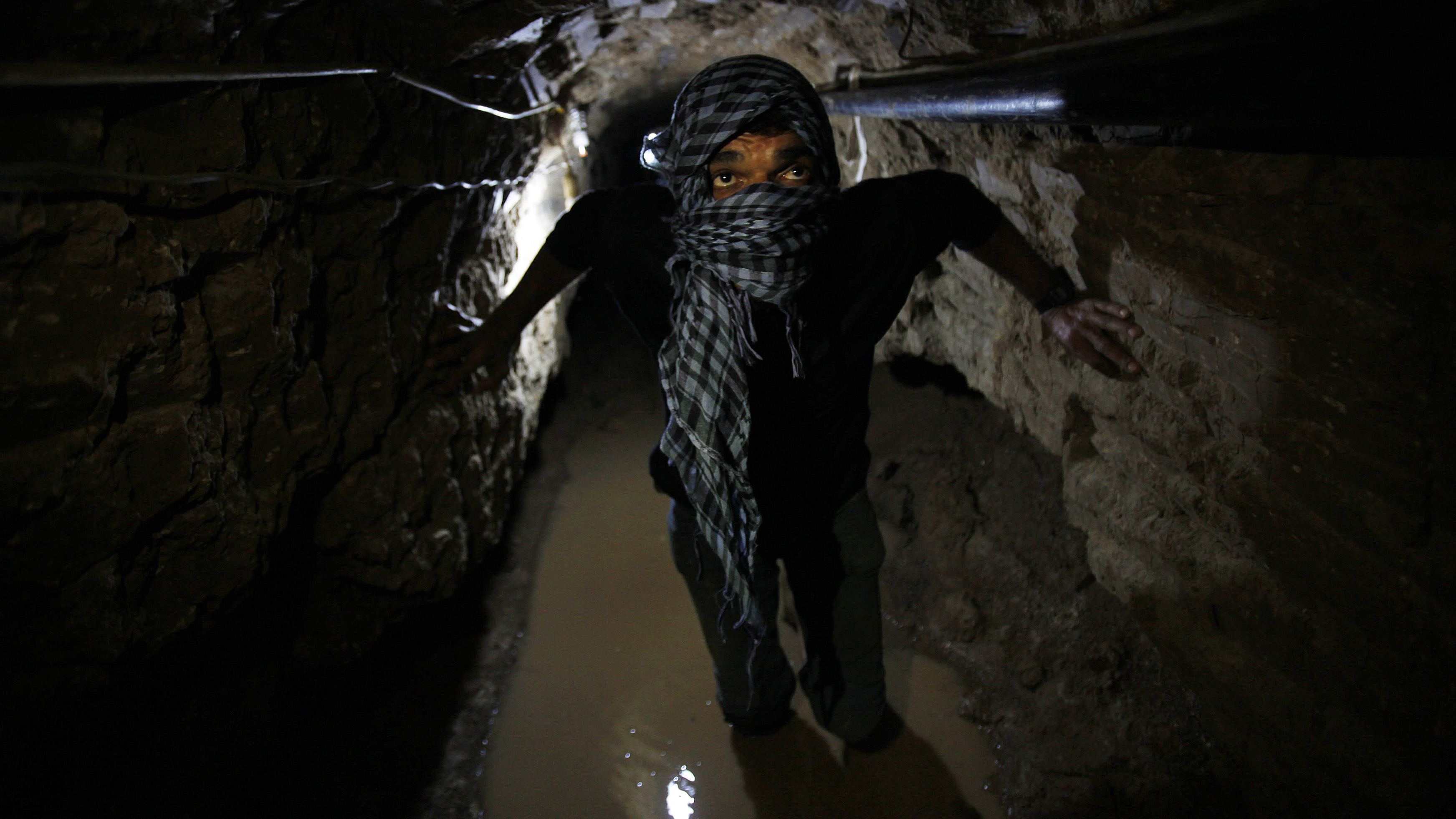Tunnels – a new theatre in the Israel-Gaza conflict
Drones and rockets have shaped much of the aerial activity in the conflict between Hamas and Israel. But there is a new theatre of war emerging underground.

Forget rockets and warning drones. There is another complicated and unpredictable theatre of war opening up in this conflict.
The intricate network of tunnels that dipped under the border between Gaza and Egypt once provided a crucial economic passage for a territory that was choked by punitive sanctions from Israel. Through them flowed everything from smuggled cigarettes to medicine, food and cattle.
But things have long since taken a darker turn. In 2006, Hamas tunnelled into Israel, seizing a soldier, Gilad Shalit, and held him for five years before negotiating his release in 2011 in exchange for more than 1,000 Palestinian prisoners. It was incidents like these that compounded suspicions of Hamas orchestrating an underground tunnel network that inches closer to – and often encroaches on – Israeli territory.
Tip of the iceberg
Three tunnels discovered last year originated near the town of Khan Younis in southern Gaza. One of them discovered last October was 1.1 miles long and stretched 328 yards into Israel.
But that has turned out to be just the tip of the iceberg.
The Israeli army says its soldiers have uncovered more than 30 shafts leading into about a dozen underground tunnels, some as deep as 30 metres. On Thursday, troops foiled an attempted attack by militants from Gaza who emerged from a tunnel close to Kibbutz Sufa, near the border. It is not difficult to see why they may be worried.
While the Iron Dome missile defence system appears to have intercepted rockets launched from Gaza at Israel’s cites and towns, no such technology has proven similarly efficient at detecting underground passageways dug under the border. Electromagnetic and thermal technology has been used to try and map underground terrain but it has proved largely futile.
Enhanced underground network
Much of the tunnel network sprawls without a clearly defined structure, while it can be affected by environmental factors such as ground composition and water deposits.
Many of the tunnels between Egypt and the southern end of Gaza were destroyed during the military coup in Egypt, but Hamas is thought to have enhanced its underground network, receiving crucial funding and machinery while the Muslim Brotherhood held power there. Israel fears that the tunnels are offering Hamas unfettered access into their territory. And it is these that they are determined to target.
For the west it is yet another source of tension in a war where the prospect of peace looks increasingly elusive.